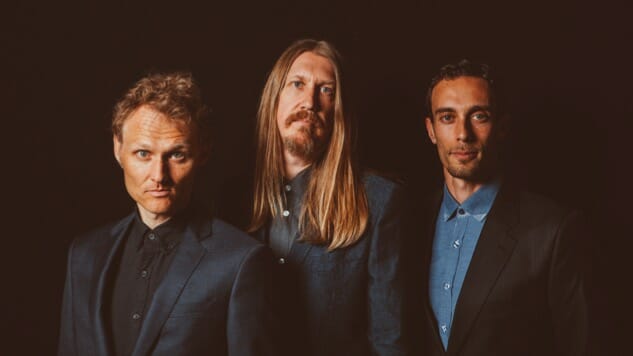The Wood Brothers on Paradise, Desire and Live Performance

Chris and Oliver Wood have been at it since they were kids, but didn’t finally link up to form the band we know them as now until 2004. Since then, they’ve maintained a consistent output of one critically acclaimed roots record after another. Their newest, 2015’s Paradise, was recorded in Dan Auerbach’s Easy Eye Studio and runs as a thematic piece, which we got to learn all about.
Paste: The cover art is great. The donkey with a dangling carrot. Is there a story behind using that old adage?
Oliver Wood: When we compiled all of these songs and looked back, we realized that there was such a theme of longing and of desire. That image really popped out at us.
Chris Wood: We liked the irony of the image with the record title, Paradise. The carrot representing that thing that is always out there that we want and we never quite get to, but think if we had that then everything would be great. But of course life doesn’t really work that way.
Paste: That theme is definitely noticed in a song like “American Heartache.”
Chris: Desire is a big theme in this record, what we think is salvation and what we think we need. What we think we want.
Paste: That dangling carrot, is that still in your career? I know everyone strives to make the best music they can, but are there still those aspirations and goals that are like “if we could get to right there…”?
Oliver: Certain days, if you look at social media, everyone’s like, “We’re doing amazing!” and “This guy’s a huge star!” so there’s probably moments where we’re like “Geez, we need to step it up here.” I think if you get caught up in it, it can feel that way. But other days it just feels like we’re doing what we love. We’re grateful.
Chris: Anything you want really bad, when you get it, you find something else to want really bad. So that’s the carrot. It’s always out there. It’s like a rainbow. You never get to it. It just keeps getting farther away.
Paste: Most of social media is smoke and mirrors anyway. A big thing happens and as soon as it’s happened, it’s gone.
Oliver: Absolutely.
Paste: I think you all are doing fine.
Oliver: We’re doing what we’re doing. After a while, you accept where you are, hopefully.
Paste: You say it like it’s a bad ting.
Oliver: Not at all. That’s the thing about desire that’s interesting to me. It usually gets a bad rap. You associate it with negative connotations. But if you kind of meditate on it, it helps me get out of bed in the morning, helps me do good things, helps me do good deeds. I desire to be happy and be in love. Things that hopefully create good stuff for other people, too. It’s not just selfish things.
Paste: I’m a fan of the idea of obsession.
Oliver: That’s holding on to the desire though. It’ll keep changing like everything else, but you can’t get rid of it though. Maybe we just have to accept it’s just something that humans do. We desire stuff. It’s ok.
-

-

-

-

-

-

-

-

-

-

-

-

-

-

-

-

-

-

-

-

-

-

-

-

-

-

-

-

-

-

-

-

-

-

-

-

-

-

-

-








































